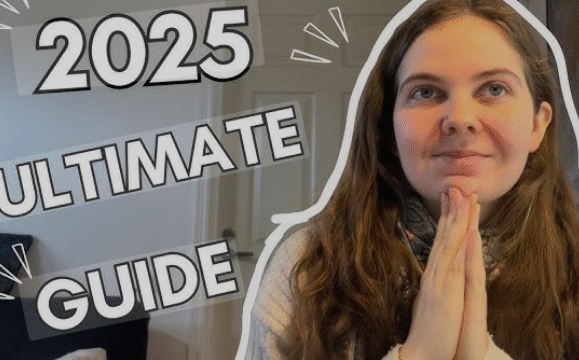Studying is something almost everyone has to do at some point in life, whether you are in school, preparing for college, learning a new skill for your job, or simply pursuing knowledge for personal growth. Yet many students spend long hours studying and still feel like they are not retaining much. The truth is that studying is not just about how much time you put in but how effectively you use that time. In 2025, with endless information at our fingertips and distractions just one click away, developing smart and practical study hacks can make all the difference. This article is your complete, friendly guide to mastering the art of studying smarter, not harder, through techniques that are backed by science, easy to apply, and suitable for learners of all ages.
Studying begins with understanding how memory works. Psychologists explain that learning involves three steps: encoding (taking in information), storage (keeping it in memory), and retrieval (pulling it back when needed). Many traditional study habits, like rereading notes repeatedly or highlighting textbooks, often feel productive but don’t do much for long-term memory. Instead, the most effective study hacks are those that help you encode information actively, strengthen storage over time, and practice retrieval often. This is why strategies like spaced repetition, active recall, teaching others, and creating routines are so powerful. They align with how the brain naturally learns.
One of the most well-known and effective hacks is spaced repetition. Instead of cramming everything the night before a test, you study a topic and then review it at gradually increasing intervals: one day later, three days later, a week later, then two weeks later. This method takes advantage of the “forgetting curve,” which shows how quickly we forget information if we don’t review it. By spacing out reviews just before you’re about to forget, you strengthen the memory each time. Many apps like Anki and Quizlet now offer automated spaced repetition systems, but even a simple calendar reminder can work. Spaced repetition is especially useful for subjects that require memorization like vocabulary, science facts, or formulas, but it also helps in subjects that build over time like math and languages.
Another powerful hack is active recall. Instead of passively rereading notes, you test yourself by trying to recall information without looking. For example, after reading a history chapter, close the book and write down everything you can remember. Then check against your notes to see what you missed. Flashcards and practice exams are also forms of active recall. This technique works because struggling to retrieve information actually strengthens the memory. It may feel harder than just rereading, but that small struggle is what makes it stick. If you only do one study hack, make it active recall, because it is one of the most effective ways to prepare for tests and long-term retention.
Related to active recall is the Feynman Technique, named after Nobel Prize-winning physicist Richard Feynman. This hack involves teaching what you’ve learned to someone else in simple language. If you can explain it clearly to a friend, sibling, or even yourself in front of a mirror, then you really understand it. If you stumble or can’t simplify it, that reveals a gap in your understanding. The act of teaching forces you to organize knowledge, connect ideas, and use your own words, which deepens learning far more than memorization.
Another favorite hack is the Pomodoro Technique, which helps you manage focus and avoid burnout. Instead of trying to study for hours straight, you break time into short sessions of focused work (often 25 minutes) followed by a short break (5 minutes). After four cycles, you take a longer break. This method keeps your brain fresh and makes studying feel less overwhelming. You can adapt the timing to what works for you, such as 40/10 or 50/10 sessions. The key is alternating focus and rest to maintain energy and avoid distractions. During breaks, move around, hydrate, or stretch rather than scrolling endlessly on your phone.
Your environment also matters. While having a consistent study spot is helpful, research shows that changing your environment occasionally improves memory retention because it creates more retrieval cues. Try alternating between your desk, the library, or a quiet coffee shop. A clean, organized space free of distractions also helps focus. If your phone is the biggest distraction, turn it into a reward. For example, after finishing one Pomodoro cycle, give yourself five minutes to check messages. You can also use apps like Forest, which blocks distractions while rewarding you with a virtual tree that grows during study sessions.
Another hack is chunking information, which means breaking big topics into smaller, meaningful units. Our brains can only handle so much at once, but if you group information, it becomes easier to digest and remember. For example, instead of memorizing a long string of numbers, you break them into groups, like how phone numbers are structured. In studying history, you might chunk events by decade or theme. In science, chunk formulas by type of problem. Chunking helps reduce overwhelm and makes studying more efficient.
Visual tools also make studying more memorable. Turning concepts into mind maps, diagrams, or flowcharts engages different parts of the brain. If you’re learning biology, draw the structure of a cell. If you’re studying literature, map out characters and themes. Even simple doodles next to your notes can help. It’s not about artistic skill but about adding variety to how you engage with material. The more senses and pathways you use, the stronger the memory becomes.
Establishing a consistent routine is another overlooked hack. Our brains thrive on patterns. If you study at the same time each day, it becomes a habit and reduces the mental effort of getting started. Pair study with a trigger, like right after breakfast or right after school. Over time, studying feels automatic. You can also align subjects with your energy levels. For example, tackle harder subjects in the morning if you’re more alert, and leave lighter review work for evenings.
Health habits cannot be ignored. Sleep is one of the most important study hacks, though it doesn’t sound like one. Memory consolidation happens during deep sleep, so all-night cramming is often counterproductive. Aim for 7–9 hours of sleep and try to keep a regular schedule. Nutrition and exercise also matter. A breakfast with protein and whole grains helps with focus, and drinking water throughout the day keeps your brain sharp. Movement, whether a short walk or stretching, boosts circulation and energy, which improves concentration.
Music can also be a tool, if used wisely. Some students find that instrumental music, classical, or lo-fi beats help them concentrate, while lyrics can interfere with reading comprehension. Experiment to see what works for you. Others may prefer silence or white noise. The important thing is to choose a background that supports focus rather than distracts from it.
Another hack is to connect new knowledge to old knowledge, a process called elaborative encoding. Instead of memorizing facts in isolation, ask yourself how they relate to what you already know. If you are learning a new math concept, connect it to one you mastered earlier. If you are studying world history, compare events to modern social changes. Creating analogies and stories ties new knowledge to familiar memory networks, making it easier to retrieve later.
Studying in conditions similar to the test is another powerful hack. If your test will be timed, practice under timed conditions. If it will require writing essays, practice outlining and writing answers, not just reviewing notes. If the exam will be oral, practice speaking answers aloud. This method, called transfer-appropriate processing, helps your brain prepare for the real situation, reducing anxiety and boosting performance.
A positive mindset is one of the most underrated study hacks. Students who believe intelligence is fixed often give up quickly, while those with a growth mindset—who see effort as the path to mastery—push through challenges. Celebrate small wins, reward yourself for progress, and remind yourself why you’re studying. Motivation grows when you connect your efforts to your larger goals, whether that’s a dream career, personal growth, or simply passing a class with confidence.
Let’s look at how these hacks might come together in practice. Imagine you are a high school student preparing for a biology exam. Instead of rereading the entire textbook, you first break the material into chunks: cell structure, photosynthesis, DNA, and genetics. You create a mind map with diagrams for each section. Then you test yourself using flashcards and active recall, reviewing each section with spaced repetition over two weeks. During study sessions, you use the Pomodoro Technique to stay focused, taking short breaks to stretch and grab water. You explain photosynthesis to a friend as if teaching it, noticing gaps you go back to review. You study mostly at your desk but also spend one afternoon in the library for a change of scenery. You stay consistent by studying at the same time each evening, while making sure you get enough sleep. By the time of the test, you feel confident because you’ve practiced recalling information under similar conditions. This is what studying smart looks like.
Study hacks can also be applied outside school. Professionals preparing for certifications, language learners, or anyone building new skills can benefit. For example, if you are learning a new language, you might use spaced repetition flashcards for vocabulary, practice speaking aloud daily, and watch movies in that language for context. You could also teach phrases to a friend, use chunking to group words by theme, and apply Pomodoro sessions to stay focused. These hacks aren’t just for students—they’re life skills.
The best part about study hacks is that they are flexible. You don’t need to use all of them at once. Pick one or two, try them for a week, and see how they feel. If they help, add another. Over time, you’ll develop your own personalized system. The key is to move from passive study to active, deliberate learning that respects both your brain and your body.
In conclusion, study hacks are about working with your brain, not against it. By using strategies like spaced repetition, active recall, teaching others, the Pomodoro Technique, chunking, visual aids, routines, healthy habits, and positive motivation, you can learn more in less time and with less stress. In 2025, with education becoming more flexible and technology-driven, the ability to study smart is one of the most valuable skills you can have. Whether you’re aiming for top grades, preparing for a big exam, or just learning something new for fun, these hacks will help you get there. Remember, it’s not about studying the longest—it’s about studying the smartest, and anyone can learn how to do it.






